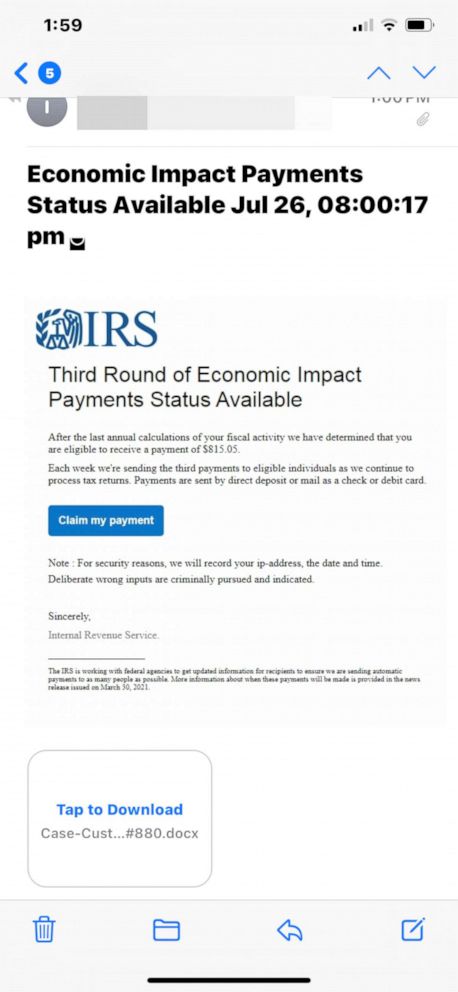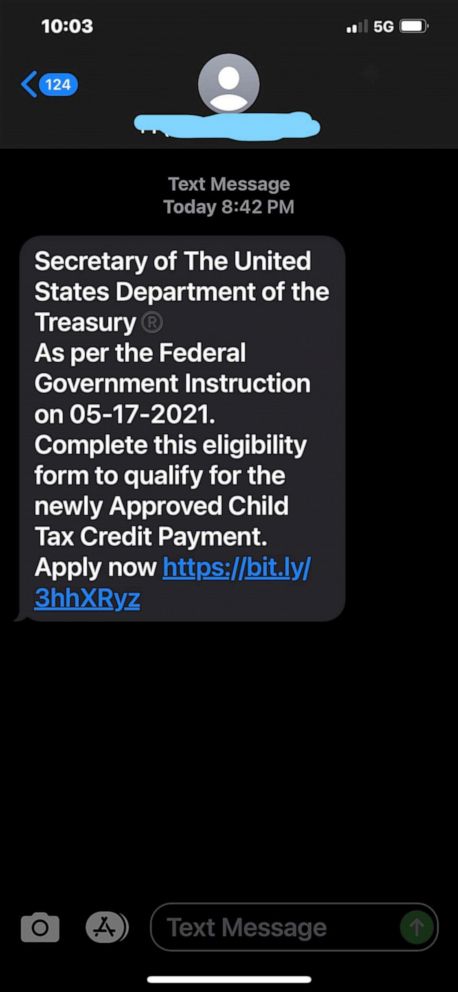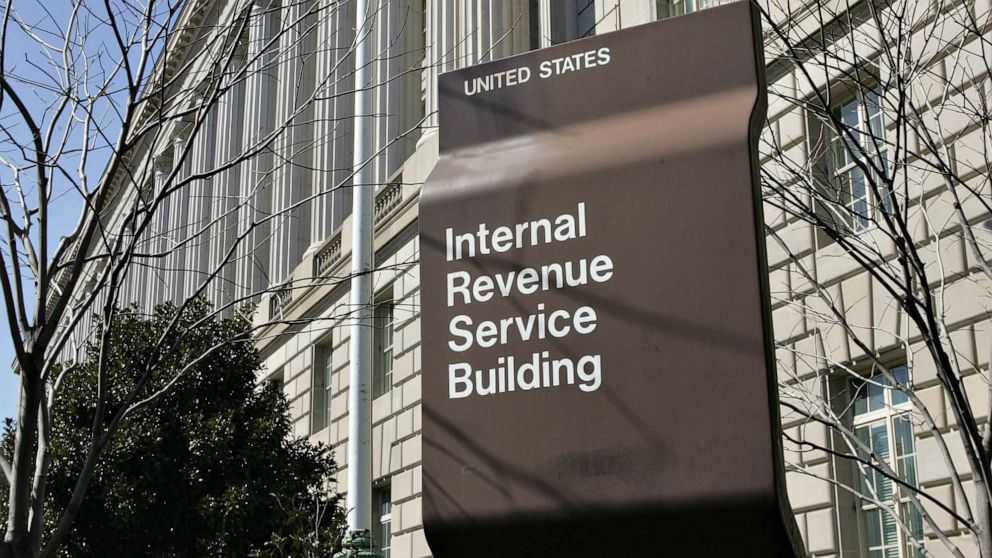IRS warns of child tax credit scams
The Internal Revenue Service is warning taxpayers of ongoing scams related to the child tax credit -- with some landing directly in Americans' email or smartphone.
"Right now we're seeing scammers trying to take advantage of the American public by attempting to gain information -- using phone calls, emails, text messages, through social media -- all attempting to target families eligible for this credit," Jim Lee, chief of the IRS Criminal Investigation Division told ABC News.
The IRS said families who qualify for the child tax credit, which was expanded as part of President Joe Biden's $1.9 trillion American Rescue Plan, would receive monthly payments without taking any further action. Initial eligibility was based on 2019 or 2020 tax returns.

"For tax year 2021, the child tax credit is increased from $2,000 per qualifying child to: $3,600 for children ages 5 and under at the end of 2021; and $3,000 for children ages 6 through 17 at the end of 2021," according to the IRS.
But several scam e-mails and text messages obtained by ABC News, show what appear to be official documents.
"Economic Impact Payments Status Available Jul 26," one scam e-mail reads and appears to be written on official letterhead.
Lee said that they are seeing scammers send "thousands of text messages and e-mails every day, hoping that they'll get people to respond and fall prey to their scam."
"Once you click on that link, you know, it usually directs you to a fake IRS website where then you're prompted to enter all of your personal information to claim this child tax credit. And just like that, scammers have all your information," he said.
In another example, a scam text message purports to be from the secretary of the treasury and asks the recipient to complete an "eligibility form."

Lee said the IRS never sends emails or text messages requesting them to fill out a form with personal information on it.
In addition to e-mails and text messages, Lee said they are also seeing scammers call people directly and in some cases threaten them with arrest if they don't pay up.
"The IRS doesn't leave prerecorded or urgent threatening messages or make aggressive phone calls warning to individuals about a lawsuit or arrests. These are fake. The IRS is not going to ask you for payment using a gift card or wire transfer or painting via a cryptocurrency. It's another sign of a scheme. And the IRS is not going to call taxpayers asking them to provide or verify financial information so they can obtain the monthly child tax credit payments," he explained.
For anyone who thinks they may have received a scam message or is a victim, Lee said to visit the IRS.gov website for more information.




